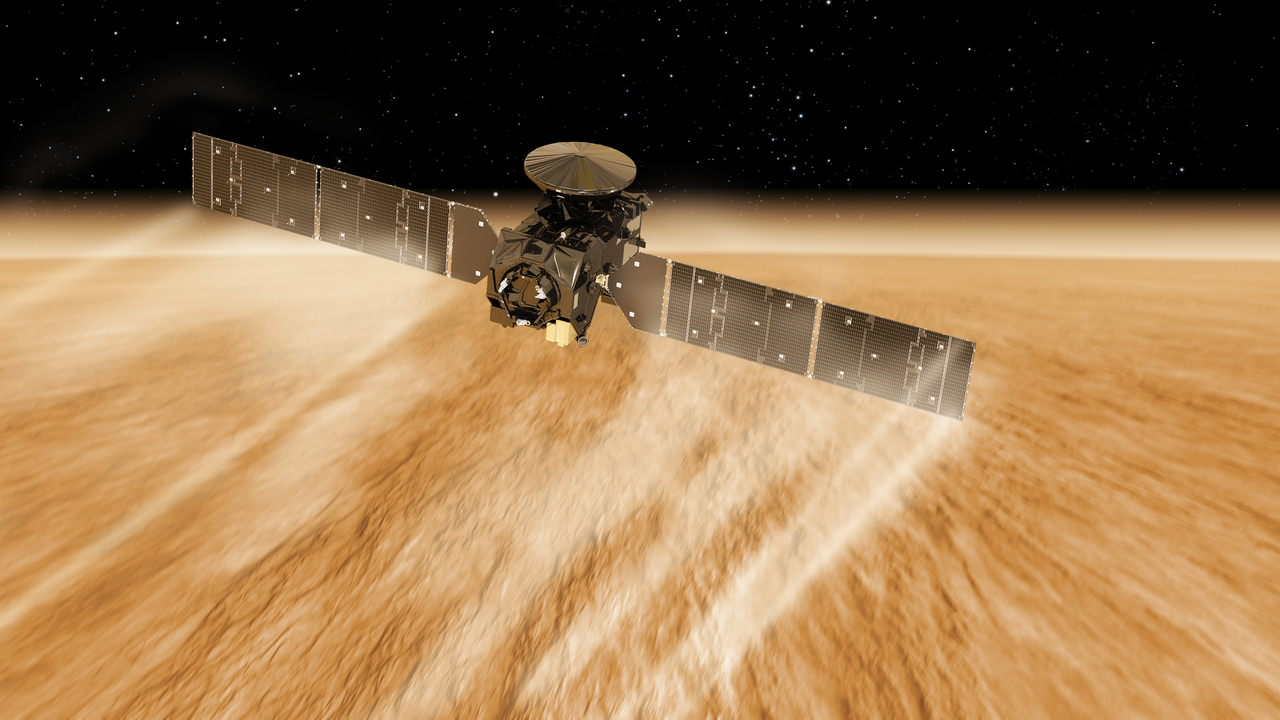From Mars Express to Exomars: a complete review of the red planet
While waiting for the first data from the ExoMars 2016 TGO mission (ESA), international experts on the red planet meet in Madrid to review some current challenges and to prepare for the arrival and scientific exploitation of ExoMars
During the next 27th and 28th of February, the main European experts on the planet Mars will gather in the facilities of the European Space Astronomy Center (ESAC) in Madrid, with the aim of making a complete review of our current knowledge about the red planet, from the subsurface to its high atmosphere.
"From Mars Express to Exomars" is a multidisciplinary conference that will serve as the closing ceremony of UPWARDS, a project funded by the H2020 program of the European Union that for three years has addressed, with new tools of analysis and theoretical models, issues not yet resolved on Mars; among them its water cycle, the origin of the methane gas detected in its atmosphere, the variability of dust storms or the slow escape of its atmosphere into space.
"The UPWARDS project has helped us to obtain a more integral image of Mars, understanding better the connections between the different phenomena observed in our neighboring planet from data coming from previous missions such as the Mars Express of the European Space Agency. Thanks to this work we are now better prepared for the scientific exploitation of the new European mission ExoMars 2016 Trace Gas Orbiter, currently in the orbit of Mars and that will soon begin its phase of scientific operation", says Miguel Ángel López Valverde, researcher at the Institute of Astrophysics of Andalusia (IAA-CSIC) and general coordinator of the project.

During the meeting, in which researchers from the US (NASA) and Russian space agencies (Roscosoms) will participate, the main results of the UPWARDS project will be presented. Also, the recent progress achieved by European missions and international collaborations will be discussed, on aspects such as composition and phenomenology of the Martian atmosphere, the properties of the surface and subsurface of the planet or the advances obtained in the characterization of its climatology, among others.
"This project has allowed us to process and interpret the latest discoveries about the surface and atmosphere of Mars. We have obtained very useful data that will be made available to the entire scientific community through the scientific archives of ESA in Madrid", declares Alejandro Cardesín, Head of Scientific Operations and Systems of the Missions Mars Express and ExoMars 2016 of the European Space Agency (ESA).
"Thanks to the work of almost fifty scientists from the UPWARDS consortium, we now have tools capable of processing data with cross-information from different instruments of the same mission, and which we will apply to the ExoMars 2016 Trace Gas Orbiter. We also know how to analyze precise observations in the limbo of the planet, such as those that will be carried out for the first time by ExoMars, but that require eliminating contaminants such as dust in the atmosphere and understanding the peculiar emissions that occur in the upper Martian atmosphere", says López Valverde. "I venture to predict that, in a short time after the arrival of the data of this mission, we will finally be able to respond to the mystery of methane, to mention just one of the many unsolved questions about this fascinating planet", he concludes.
Instituto de Astrofísica de Andalucía (IAA-CSIC)
Unidad de Divulgación y Comunicación
Silbia López de Lacalle - sll[arroba]iaa.es - 958230532
http://www.iaa.es
http://www-divulgacion.iaa.es

